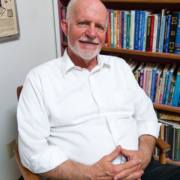Training Children to Think Critically in the Midst of Chaos and Suspicion
- What might cause people to choose riotous and mob behavior? Beyond simply having a sin nature, what drives them to such destructive action? A feeling of helplessness and anger? OR does it arise from a desire to wreak havoc and get revenge? Does anything excuse this behavior? Or is sin a sin under all conditions? (This can open a useful discussion on not using my personal feelings to justify harming others.)
- What is behind the desire to wreak havoc and get revenge? Where does such violence lead?
- How do we as a society go forward when there are such deep divisions and the country seems evenly divided?
- What kind of common ground can opposing parties find to rebuild our national unity? Does unity matter?
- What are the long term impacts of trying to control speech; of trying to pick which points of view can be expressed? When looking at similar revolutions or political movements that have followed this pattern, what happened? (Hitler’s Germany, Chavez in Venezuela, Castro in Cuba, Franco in Spain, Mao Tse Tung in China, Bolshevik Revolution and Stalin and Lenin, North Korea and the list goes on and on and on.)
- And, the most important question of all, what do you think the scripture says about this?
- Take advantage of the things you have already learned. They are building a foundation of understanding, studying various movements in history. They can compare and contrast these to understand principles that lead to the necessary order to have real freedom and unity.
- A good example of this is the contrast between the American Revolution and the French Revolution. By the high school years, our students have learned enough to contrast these two. The American Revolution was an appeal to law and the legal rights as British citizens — read the whole Declaration of Independence, even the boring parts. At the end of the military conflict, there was an immediate return to the rule of law. The French Revolution was a rebellion against any law. It claimed to be about Freedom, Equality and Fraternity — but no freedom, equality or fraternity was offered to any who disagreed with the revolutionaries — off with their heads!
- Help them engage through…
- Demanding definitions. When someone says that they want “freedom for the oppressed” — one must ask who is the oppressed, how is oppression defined, what do we mean by freedom? It is great to call for equality. We all believe in equality as defined by the Declaration of Independence and even by Martin Luther King, Jr. (whose birthday is celebrated today). But is this equality in personhood, equality of opportunities, equality of outcomes, economic equality regardless of effort and diligence?
- Drawing distinctions between public talking points/goals and actual actions and agendas — some slogans sound great but their organizations often have something much different that they are working to accomplish. “Planned Parenthood” sounds nice, but that title is betrayed by the actual actions of this group. The real genocide taking place in America takes place through abortion taking the lives of an estimated 1,000 Black babies a day.
- And evaluating the fruit of competing systems and movements. We can see the results of similar sloganeering that is popular today in real life if we study history and even current events. (Our students read Animal Farm by George Orwell for this very reason.)
Don’t feel like each discussion has to come to a clear cut resolution. These are challenging ideas for anyone to process. Let your child know that these are complex issues and thinking through and researching can take time while one comes to a settled conviction. You as a parent have seen things happening for years. You have wrestled through them. You have discussed them with your friends and, maybe even your pastor. Let your children know that this is a part of critical thinking and being a solid believer and citizen in these challenging times. We all want to avoid knee-jerk reactions and we should train our kids to do the same.










Leave a Reply
Want to join the discussion?Feel free to contribute!